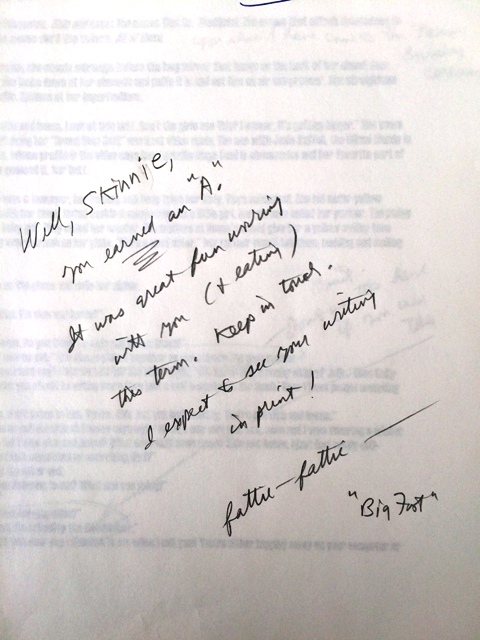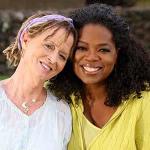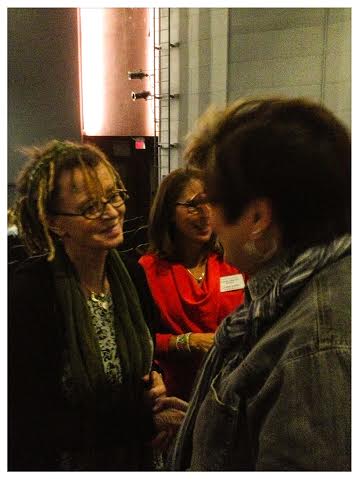
Omega is still on my mind. The land, its quietude with its open fields and gravel roads and lukewarm waters will forever be a part of me. I breathe it all in. Its sunlight warming my face, its grass under my bare feet. Its August summer wind. Even though it’s been two weeks since I said goodbye, the feeling I had when I was there is still in me – a calmness, an inner peace – I’m still carrying it. I thought by now the sensation would fade, and maybe it will. Perhaps it will evaporate from me slowly, slip away gradually the way anesthesia wears off after surgery.
I am looking at the world differently now. I am noticing details. The shape of clouds, the chimes on my porch, the sound of my dog crunching on her kibble. Everything seems so rich, colorful, alive, sharp, in focus.
This feeling is familiar to me. But it’s been absent from my life for some time. It was with me in my 20s, when I really plunged into writing. I wrote everywhere. The downtown library, cafes, my bed, under trees. I never left the house without my notebook; I filled handfuls of them. I felt so driven then. The whole world felt alive. There’s that word again “alive.” Everything was a story. I’d narrate the rain, the autumn air on my skin during my morning runs. I lived to write and wrote to live.
During my last year of college, I arranged an independent study with one of my professors, Pamela Gay. We’d meet once a week at her house. She’d make me tea in her kitchen and fix me something to eat. She nicknamed me “Skinnie.” I jokingly, but affectionately, called her “Fattie,” though there wasn’t an ounce of fat on her. We’d sit on her couch or her front porch, and I’d read my work aloud to her. She was teaching me fast fiction, but every time I wrote, prose poems came out of me. I discovered Ginsberg one afternoon wandering through stacks and felt inspired by his work. I revolted against fast fiction. I wanted more story, more character. Every time I read a piece of fast faction it left me wanting more. But Pamela made me stick with it. And I learned their power was in the details and the exactness of words.
My writing was young then. Most of it was about love and broken hearts and relationships. I read it back now and I cringe. I still have my black binder full of my assignments and Pamela’s comments. “I expect to see your writing in print!” she scribbled in pencil on my last assignment. I wonder if she remembers me; I remember her. She had black straight hair, perfectly symmetrical and blunt, hitting the middle of her ear. Her bangs were cut straight across her forehead. The last time I saw her was in a coffee shop in Binghamton before I moved to Ohio. I had just graduated and she told me I wasn’t ready to go to grad school to get my MFA in creative writing. She told me to wait. Write more. Even though I didn’t want to hear it, I knew she was right. I still had some living to do, and my writing needed maturing.
I remember she really liked one of my stories I wrote titled “Toothpick.” It was part fiction/part nonfiction. It was a story about a girl who was skinny and insecure and people commented on her weight a lot. Pamela asked me to read it at her art installation opening, a collection of work about body image; it was called The Fat Project. It was my first time I ever read a piece of my work in front of an audience. My best friend Heather came to support me, eagerly smiling in the wings. I thought for sure I would throw up during my reading. (I didn’t.) Afterwards, a few people came up to me to talk about my piece. I couldn’t believe they listened or let alone waited to talk to me after. Me. Me?! It was the first time a stranger responded to my writing. And it felt damn good. Pamela gave me a platform to share my work. What a gift.
I didn’t realize until now, 15 years later, how influential Pamela was in my writing process. She exposed me to John Updike, Ursula Heigi, Margaret Atwood and one of my favorite books, “Einstein’s Dreams.” I underlined my favorite passages in my reading assignments, and then we’d talk about it together. Why it works, why it’s moving. She taught me about setting, creating an arc in a story, the need for brevity. She made me seek out writing I loved, photo copy it and bring it to her for discussion. She’s the reason why I started carrying a notebook with me to capture overheard dialogue, details, lightning bolt moments of inspiration. “Ideas develop in ways that don’t occur when we keep our ideas silently to ourselves,” she said. I look back on that binder full of my first writings, my thoughts and her thoughts intertwined on the page, and I feel my excitement of self-discovery, like I was unlocking something magical within me.

Before Omega, I wasn’t writing much. Not like I used to, and definitely not like I was in my 20s. Sometimes there are moments where life is too painful to write. I didn’t have the desire to pick up the pen because I feared I’d write about the thing that was causing me the most pain. But after Omega, I’ve realized that writing is too important to me to let it drift away. Omega left me full – my heart, my mind, my soul. My writing feels different now. Freer. Deeper. I carry my notebook everywhere with me now. Any 10 minutes I can grab at the doctor’s office, waiting to meet a friend, waiting for water to boil, I fill in the spaces between with writing.
Now, when I write, I write furiously, like my pen is on fire. Never lifting off the page. Each time I feel like I’m writing for my life, to save myself, as if my life depended on it. It does depend on it. Writing has come home to me. Or maybe, I’ve come home to writing. We have a new relationship now, cemented by my experience at Omega. I will never write the same again.
Sometimes, my hand cannot keep up with my thoughts; they fill my notebook. I run out of ink. I am all over the page, writing outside the lines, making marks on the paper that I may not be able to decipher weeks from now when I reread my work. And this voice inside my head keeps urging me, “Don’t stop now. Keep going.”

















